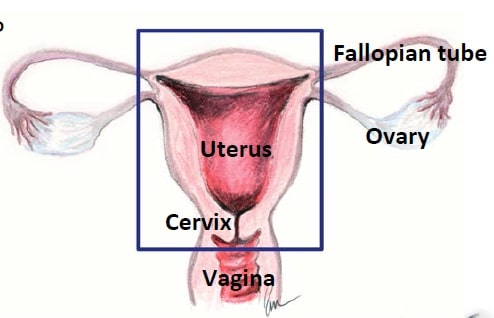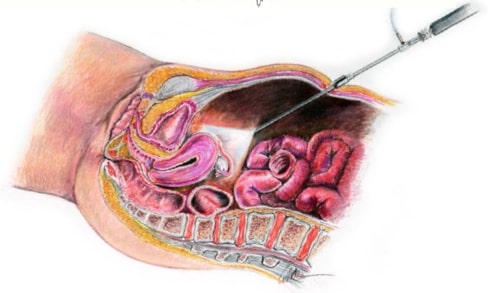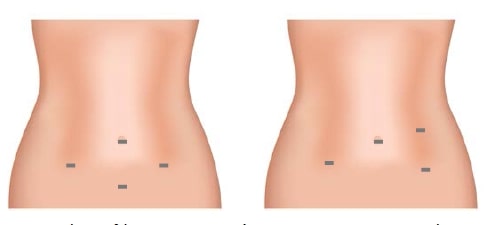Laparoscopic Myomectomy
Uterine fibroids (also called myomas) are non-cancerous growths that originate from the uterus. Up to 70% of women will have fibroids by age 50, and 25% of these women will have significant symptoms. Symptoms of uterine fibroids can include heavy menstrual bleeding, prolonged periods, pelvic pain, pressure on other organs (called bulk symptoms), or planning your life around periods. Symptoms often depend on the size and location of the fibroids in the uterus.
Laparoscopic or robotic myomectomy is a procedure for removing uterine fibroids (growths). Your surgeon first makes a few small surgical cuts in your abdomen (or belly). She then places a small camera through one of these cuts to see inside. She uses the other small surgical cuts to insert tiny (robotic) instruments that can remove the fibroids (growths) in little pieces. This is called minimally-invasive surgery because the small size cuts are less damaging for your body. The other way surgeons perform an abdominal myomectomy is to make one large surgical cut in your abdomen (usually 5 to 7 inches long). Women who have laparoscopic (or minimally invasive) myomectomies recover more quickly, have less pain, and have fewer infections.
Why is this procedure performed on patients?
Laparoscopic or robotic myomectomy is used for women with symptomatic fibroids who want to save their uterus.
Benefits of the surgery:
Alternatives to this procedure can include:


What are the risks of this procedure?
There is a small chance of having a complication or problem when you have surgery. Your risk could be higher if you have had surgery before or have other medical conditions. Some risks include:
What should I expect after surgery?
Everyone recovers at a different pace after surgery. Many patients are able to get back to most of their usual activities by two weeks after surgery, but full recovery can take six-to-eight weeks. Common symptoms after total laparoscopic hysterectomy include:
Do not put anything in your vagina for at least six weeks (no tampons or sexual intercourse).
When should I call my doctor?
Serious problems after total laparoscopic hysterectomy are uncommon, but notify your surgeon if you develop:

